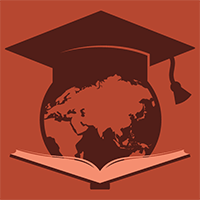Topic Editors




Education for Sustainable Development and Science Teaching
Topic Information
Dear Colleagues,
For several decades, it has been assumed that human influence causes an imbalance between economic development, social welfare and environmental protection that cannot be easily neutralised. The various appeals from the international scientific community, NGOs and the UN itself have had less impact than expected, although we can recently find these issues integrated into the educational curriculum in several countries. It therefore seems urgent and necessary to involve the educational field at all levels to take the necessary actions to address the situation. In particular, since the 2030 Agenda was proposed, several universities and research institutions highlight the need to develop sustainable education. Various efforts and proposals related to quality education, poverty, development, human rights and care for the environment are part of the strategic plans of institutions and are ongoing goals that are promoted at all levels of education. In addition, in order to achieve the Sustainable Development Goals (SDGs), institutions promote various activities such as the proposal of several conferences focused on the SDGs, the funding of research and innovation grants, the promotion of associations and social groups, regional, national and European projects and grants, and specific actions for each goal. It seems logical to think that the seed should be planted in education. As students first, and then as citizens, Education for Sustainable Development will provide the acquisition of skills, competences and attitudes, as well as the knowledge and values needed to provide a sustainable future for all. Although there are already important initiatives that are proving capable of raising students' interest in these issues, many of them are limited in scope. Further dissemination in an appropriate context could enable them to be applied on a wider scale and have a greater impact. The aim of this Special Issue is to bring together the most relevant current contributions in this field to serve as a model and example for others, convinced that only with the involvement of educators will it be possible to create true education for sustainable development. Therefore, we are honoured to serve as the guest editors of this Special Issue, which will contain articles related to the field of Education for Sustainable Development. We cordially invite researchers to submit their contributions, both original research articles and review articles, for this Special Issue.
Dr. José Benito Vázquez Dorrío
Prof. Dr. Araceli Queiruga-Dios
Dr. Manuel Filipe P. C. M. Costa
Prof. Dr. Miguel Ángel Queiruga Dios
Topic Editors
Keywords
- education for sustainable development
- sustainable development goals
- citizen participation
- social service
- citizen science
- service learning
Participating Journals
| Journal Name | Impact Factor | CiteScore | Launched Year | First Decision (median) | APC | |
|---|---|---|---|---|---|---|

Education Sciences
|
3.0 | 4.0 | 2011 | 24.9 Days | CHF 1800 | Submit |

European Journal of Investigation in Health, Psychology and Education
|
3.2 | 3.5 | 2011 | 20.1 Days | CHF 1400 | Submit |

Sustainability
|
3.9 | 5.8 | 2009 | 18.8 Days | CHF 2400 | Submit |

Trends in Higher Education
|
- | - | 2022 | 18.9 Days | CHF 1000 | Submit |

MDPI Topics is cooperating with Preprints.org and has built a direct connection between MDPI journals and Preprints.org. Authors are encouraged to enjoy the benefits by posting a preprint at Preprints.org prior to publication:
- Immediately share your ideas ahead of publication and establish your research priority;
- Protect your idea from being stolen with this time-stamped preprint article;
- Enhance the exposure and impact of your research;
- Receive feedback from your peers in advance;
- Have it indexed in Web of Science (Preprint Citation Index), Google Scholar, Crossref, SHARE, PrePubMed, Scilit and Europe PMC.

